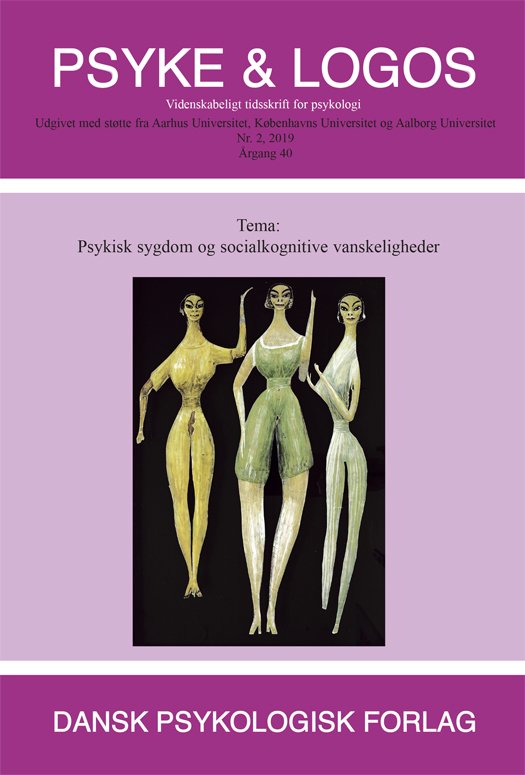Social cognition, psychotherapy and psychotic disorders
A systematic review of the effects of social cognition on the outcome of psychotherapy for schizophrenia and other psychotic disorders
DOI:
https://doi.org/10.7146/pl.v40i2.117809Keywords:
Social cognition, Psychotherapy, Psychotic disordersAbstract
This article presents a systematic review of selected literature on "social cognition, psychotherapy, and psychotic disorders" published between 2008 and 2018. The aim of the review is to investigate current findings on the interaction between social cognition and psychotherapy for psychotic disorders. More specifically, the study investigates: 1) whether the level of social cognitive functioning can predict the outcome of psychotherapy 2) which effects psychotherapy have on the level of social cognitive functioning, and 3) whether a change in the level of social cognitive functioning mediates a change in the outcome of psychotherapy. The included literature consists of seven studies that investigate different aspects of the aim. The results imply that a reduced level of social cognitive functioning to a small extent predicts and limits the outcome from psychotherapy, psychotherapy does not have an effect on the level of social cognitive functioning, and the change in the level of social cognition does not mediate a change in the outcome of psychotherapy. The research field is minimal, and therefore, more research is needed. Theory on social cognition/psychotherapy and studies on social skills training/social cognitive training implies a relevant interaction between social cognition and psychotherapy.
Downloads
Published
How to Cite
Issue
Section
License
Ophavsret er tidsskriftets og forfatternes. Det er gældende praksis, at artikler publiceret i Psyke & Logos, som efterfølgende oversættes til andet sprog, af forfatteren frit kan publiceres i internationale tidsskrifter, dog således at det ved reference fremgår, at den oversatte artikel har et forlæg i en dansksproget version i Psyke & Logos. Artikler kan frit deles og linkes til på forsknings- og undervisningsnetværk (så som Blackboard). Link foretrækkes, fordi det giver oplysning om brug af tidsskriftets artikler.




